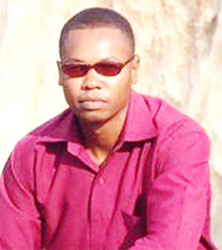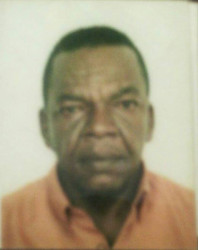The Guyana Human Rights Association (GHRA) yesterday said the Ministry of the Presidency needs to answer the legitimate political and legal questions raised by the failed Special Organised Crime Unit (SOCU) operation that resulted in three deaths during a chase along Carifesta Avenue on December 30 last year.
In a statement issued yesterday, the GHRA also said the botched operation raises many questions regarding the extent to which good governance principles appear to be eroding. “…[T]he multiple political and legal questions raised by the incident in question require a Parliamentary statement from the Ministry of the Presidency, referencing all the legitimate questions raised,” it said.



Guyana Defence Force (GDF) intelligence officer Sergeant Robert Pyle, his wife Stacy Pyle and truck driver Linden Eastman died on Carifesta Avenue on December 30, 2015, following a horrific collision that occurred during the chase.
At the time, Pyle had been in pursuit of a vehicle transporting Alana Seebarran, wife of PPP/C MP Charles Ramson Jnr. Pyle, who had been part of an operation being conducted by SOCU, at the time believed the vehicle was occupied by the children of the Head of NICIL, Winston Brassington.
Although the GDF has said Pyle was on a legitimate operation, his involvement has raised questions about the involvement of the army in the activities of SOCU, which is supposed to be a civilian law enforcement authority.
The case has prompted the Guyana Bar Association (GBA) to call for an independent inquiry and for an explanation on the use of military officers in such activities.
The GHRA yesterday added that the existence of the operation suggests that “lines between the Coalition Government, the army and the police force are becoming, once again, somewhat blurred.” It further warned that the goodwill that the government has enjoyed from a range of citizens, well beyond active supporters of the APNU+AFC, is being tested by a perception that the coalition is beginning to act as if the righteousness of a cause justifies disregard for established conventions and democratic procedures.
It further noted that in light of incompetent implementation frequently obscuring original intention in this society, the GDF is vulnerable to having well-meaning involvement in government perceived in more sinister terms.
“Furthermore, creeping expansion of the role of the military is encouraged by enmeshing anti-corruption into the counter-terrorism rhetoric,” it observed, while saying that this development has been prompted from abroad and is currently driving hasty re-alignment of laws and financial institutions that far exceed domestic requirements.
The GHRA added that despite efforts to project the SOCU as required by the Anti-Money-Laundering and Combatting of Financing of Terrorism Act, the agency was set up without recourse to Parliament. It noted that the former Head of the Presidential Secretariat Dr. Roger Luncheon in 2013 had identified its mandate as being to strengthen Guyana’s capacity to “investigate suspicious financial transactions that are suggestive of money laundering.” SOCU was then placed under the authority of the Guyana Police Force, not the Guyana Defence Force, it added.
The GHRA also emphasised that the “most disturbing features” of technical changes imposed in response to international pressure are the multiple opportunities they provide to suspend civil liberties and bypass democratic processes. It cited the ongoing “Operation Dragnet,” which has been described as “a massive anti-crime and counter-terrorism operation” that is being carried out by the Joint Services. The human rights watchdog, however, said the operation is a logical progression in the disturbing sequence it outlined, despite being airily passed off as “normal for the army to support the country’s law enforcement and regulatory agencies in operational activities.”
According to the GHRA, political surveillance by civil authorities in well-established democratic societies is always a sensitive matter. “In our context of rudimentary democratic traditions, inexperienced and zealous political leadership, surveillance by military authorities is an ominous development,” it further noted.
It said assurances would be welcome over the extent to which “the shadowy electronic surveillance capacity” established under the previous government, referred to as the Central Intelligence Agency, is being deployed in “Operation Dragnet.”
Further, it added that a broader discussion of military involvement would allay any disquiet that these activities fall within their traditional constitutional role of assisting the civil power in maintaining law and order, when required to do so.
Additionally, it noted that public re-assurance would be further advanced if the coalition government develops the practice of strengthening its capacities by engaging all sectors of civil society rather than by turning so readily to the military sector.





